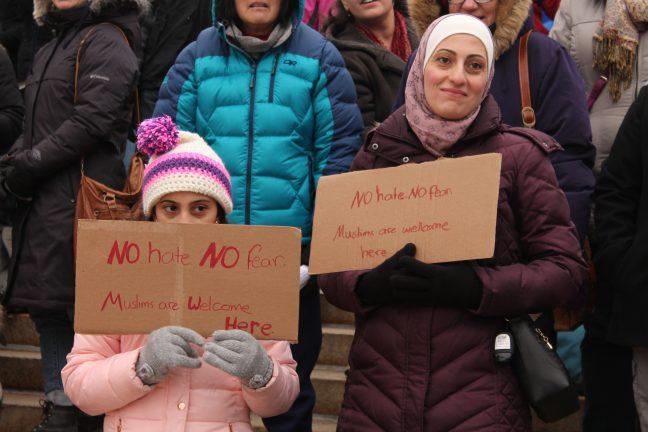President Donald Trump’s ban on Muslims should remind us of the persecution of Mormons in the 19th century. Both were violations of religious freedom, but the reasons behind these actions should be distinguished from each other.
The Mormon population consistently votes Republican, including in the latest election, where exit polls showed 62 percent of Mormons voted for Trump. Despite Trump’s anti-Muslim platform during campaign, the Latter Day Saints church ironically still agreed to provide choir music for the inauguration. But today, the Latter Day Saints leadership’s statements urge solutions to relieve refugee suffering.
Some might call Mormons the “refugees at home,” given their history of religious persecution. Indeed, Mormons fled several states, such as Illinois and Missouri, before finally arriving in Utah. Similarly, Muslim refugees suffer at the hands of Islamic extremists, who instill terror in their countries, and flee to seek homes where they will not face violence. Just as Americans rejected Mormons for their religious beliefs, ISIS and related extremist regimes reign terror on innocent Muslims who refuse to comply to their warped rules and restrictions.
It is important to note that we did not turn our backs on the Mormons, the way we are on Muslims, even though research in Mormon church history shows that the persecution of Mormons was not entirely unjustified.
If it quacks like a Muslim ban, then it probably is a Muslim ban
It would be wrong to allege Mormons were merely persecuted for theological disparities with other denominations. Other aspects of the Mormon community appeared to have threatened the local communities. For instance, the early Latter Day Saints settlers too openly declared their divine rights to the land and resolution to purchase it, and the solidarity within the Mormon community increased the tension between Mormons and indigenous peoples.
Another significant difference between early Mormons and the Muslim refugees is the privilege to use force, which the persecuted Mormons had. Historian Stephen C. LeSueur notes in “The 1838 Mormon War in Missouri” the Mormon soldiers, who were so confident in their leaders and their belief as the chosen people, committed numerous crimes against the local Missourians. Mormons tend to use these accounts to justify the authenticity of their belief, but martyrdom implies not lowering yourself to the level of your enemies, which is something they clearly failed to do.
At the end of the day, religious freedom suggests a doctrine that sounds something like: “I may not agree with anything you say, but I will die for your entitled right to say it,” and for this reason, the Mormons were able to establish a home in America. This reinforced the notion that, at the end of the day, this country is a land for all.
It is very important to take a step back and reconsider our positions with sufficient information from history before making any claims or boxing out an innocent population suffering from the very same terrorism that we fear. As we consider implications of the Muslim ban, we must remember that we have established ourselves as a safe space for the rejected. And in this case, the rejected are absolutely innocent.
Any religious persecution is unjust, but even compared to previous accounts in history, this time it is extraordinarily so.














